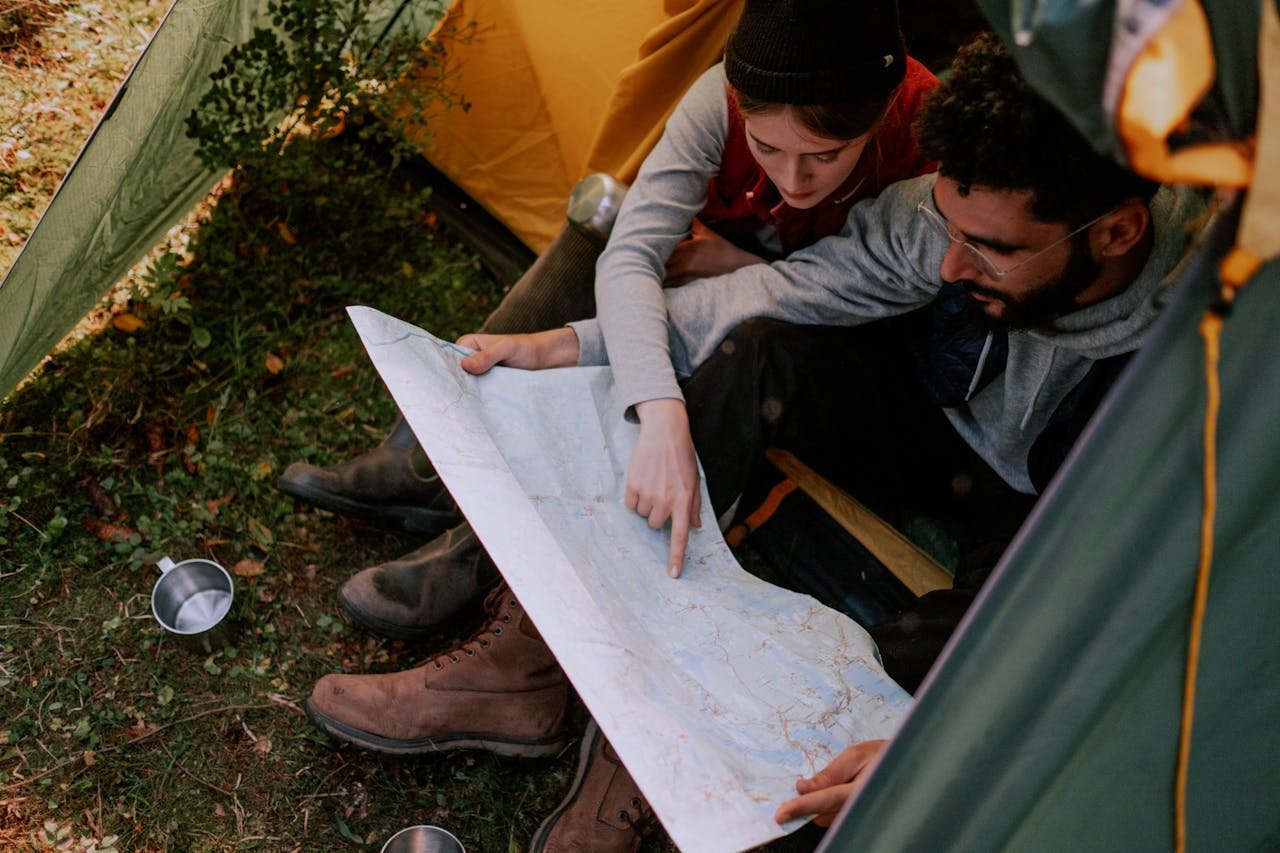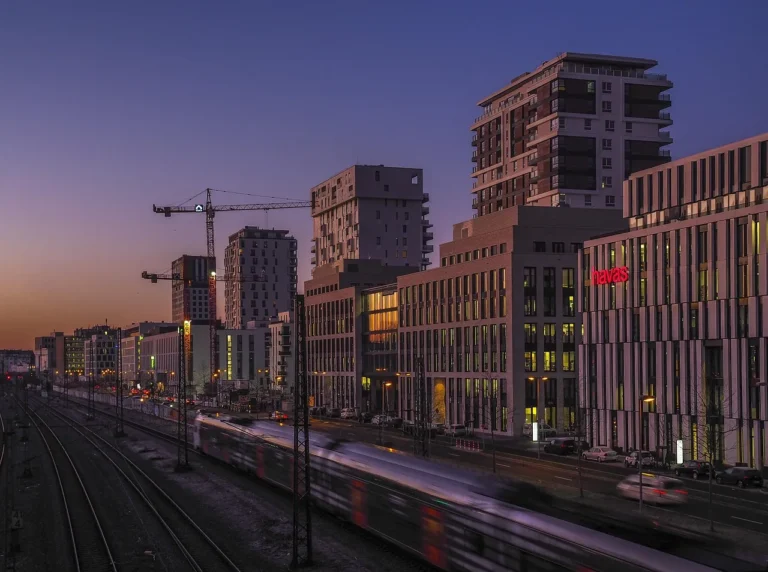
Introduction
Ever stood in an empty apartment surrounded by 47 unlabeled boxes, wondering where you packed your coffee maker? Or realized on moving day that your sofa won’t fit through your new doorway? Yeah, me too. And I’ve got the emotional scars (and chipped furniture) to prove it.
After coordinating six cross-country moves and helping countless friends relocate everywhere from bustling London flats to remote mountain cabins, I’ve seen it all—the good, the bad, and the “why did I pack my phone charger in that mystery box?” ugly.
Let’s skip the sugar-coating: moving sucks. But it doesn’t have to be the soul-crushing experience many make it out to be. The difference between a moving disaster and merely an inconvenient weekend often comes down to avoiding some surprisingly common pitfalls.
1. Underestimating the Time Required for Moving Preparations
![Insert image of a person looking at a calendar with concerned expression]
One of the most common mistakes I see is people drastically underestimating how long the relocation process actually takes. When I moved to Barcelona last year, I thought three weeks of preparation would be plenty—I couldn’t have been more wrong!
Why This Happens:
Most people focus solely on the physical moving day while overlooking the countless preparation tasks: researching the destination, securing accommodation, organizing paperwork, decluttering belongings, and arranging transportation. Each of these steps requires significant time and attention.
How to Avoid This Mistake:
Start planning at least 2-3 months before your intended moving date. Create a comprehensive timeline that breaks down tasks week by week. I recommend working backward from your moving date:
- 8-12 weeks before: Research destinations, start visa applications (if needed)
- 6-8 weeks before: Find accommodation, begin decluttering
- 4-6 weeks before: Book moving services, start packing non-essentials
- 2-4 weeks before: Transfer utilities, notify important institutions
- 1-2 weeks before: Finalize packing, prepare an essentials box
Remember that international relocations typically require even more lead time, especially for visa processing and shipping arrangements.
2. Inadequate Research About the Destination

Moving to a new place without proper research is like jumping into the ocean without checking its depth. I made this mistake when relocating to Tokyo—I arrived with barely any understanding of the local housing market and spent weeks in overpriced temporary accommodation while scrambling to find a suitable apartment.
Why This Happens:
The excitement of moving somewhere new often clouds judgment, leading people to make assumptions about their destination based on brief online searches or outdated information from friends.
How to Avoid This Mistake:
Conduct thorough research about your destination covering:
- Cost of living (housing, groceries, transportation, healthcare)
- Local customs and cultural norms
- Climate and seasonal variations
- Neighborhood safety and amenities
- Job market (if applicable)
- Healthcare system
- Education options (if moving with children)
I highly recommend visiting the Wikipedia page of your destination city for baseline information, then diving deeper with local forums, expat groups, and government websites. If possible, visit the location before making a permanent move to get firsthand experience.
3. Neglecting Essential Paperwork and Documentation
Documentation issues can bring your relocation dreams to a screeching halt. During my move to Germany, I almost couldn’t rent an apartment because I hadn’t brought the right financial records from my home country.
Why This Happens:
Different countries and even different cities have varying requirements for residency, property rental, employment, and daily life. Many movers focus on physical belongings while overlooking the crucial documents needed to establish themselves legally in their new location.
How to Avoid This Mistake:
Create a document checklist specific to your destination. Common essential documents include:
- Passport and visa documentation
- Birth certificates and marriage certificates
- Academic and professional qualifications
- Medical records and vaccination certificates
- Driver’s license and international driving permit
- Tax documents from previous years
- Employment contracts and references
- Banking history and credit references
Always keep original documents with you during travel rather than packing them with household items. Make digital copies of everything as backup and have them accessible from cloud storage.
4. Failing to Create a Realistic Moving Budget
Financial surprises during relocation can quickly turn excitement into anxiety. When I moved across the country last year, I underbudgeted by nearly 40% because I missed several key expenses.
Why This Happens:
Many people account only for the obvious costs like transportation and rental deposits while missing numerous smaller expenses that quickly add up: temporary accommodation, storage fees, insurance, utility connections, replacement of incompatible appliances, and more.
How to Avoid This Mistake:
Create a comprehensive budget that includes:
Pre-Move Expenses:
- Research trips to your destination
- Visa and immigration fees
- Professional movers or DIY moving costs
- Packing supplies
- Storage costs
- Travel insurance
Move-Day Expenses:
- Transportation (flights, fuel, etc.)
- Accommodation during transit
- Meals during travel
- Emergency fund (15% of total budget)
Post-Move Expenses:
- Rental deposit and first month’s rent
- Utility connections and deposits
- Furniture and household essentials
- Local transportation
- Initial grocery stocking
- Temporary accommodation if needed
Add a 20% buffer to your total budget for unexpected costs—you’ll likely need it!
5. Overlooking Customs and Import Regulations
Customs issues can derail even the most meticulously planned moves. A friend of mine had nearly half her possessions held at customs for weeks because she didn’t properly research import restrictions for her electronics and food items.
Why This Happens:
Each country has specific rules about what can be brought in, what requires duties or taxes, and what’s prohibited entirely. Many movers assume their personal belongings won’t face scrutiny or restrictions.
How to Avoid This Mistake:
Research customs regulations thoroughly for your destination country:
- Check prohibited and restricted items (certain foods, plants, medications)
- Understand duty and tax requirements for high-value items
- Learn documentation requirements for electronics, vehicles, and other expensive possessions
- Research quarantine requirements for pets
- Verify if wooden furniture needs special treatment certificates
For international moves, consider consulting with a customs broker who specializes in your destination country. The small fee is worth avoiding potential headaches at the border.
6. DIY Moving When Professional Help Is Needed
The “I can do it myself” approach to moving can lead to damaged belongings, personal injury, and extreme stress. During my first international move, I tried handling everything alone and ended up with broken furniture, missing boxes, and a back injury that took months to heal.
Why This Happens:
Many people underestimate the complexity of a long-distance move and overestimate their ability to manage the logistics, heavy lifting, and transportation challenges.
How to Avoid This Mistake:
Honestly assess your moving needs by considering:
- The volume of your belongings
- Distance of the move
- Presence of valuable or fragile items
- Your physical capabilities
- Your time constraints
- Special requirements (piano moving, art transportation)
For international relocations or moves with substantial belongings, professional moving services are nearly always worth the investment. Compare quotes from at least three reputable moving companies with experience in your specific type of relocation.
| DIY Moving | Professional Movers |
| Lower upfront cost | Higher upfront cost |
| High personal time investment | Minimal time investment |
| Higher risk of damages | Insurance coverage for damages |
| Responsibility for logistics | Expert handling of logistics |
| Limited equipment | Specialized equipment |
| No expertise for customs | Experience with regulations |
7. Ignoring Cultural Adjustment Challenges
Cultural adjustment is one of the most underestimated aspects of international relocation. When I moved to South Korea, I spent months feeling frustrated and isolated because I hadn’t prepared for the cultural differences in communication styles and social expectations.
Why This Happens:
People often focus entirely on the practical aspects of moving while neglecting the psychological and emotional challenges of adapting to a new culture, language, or social environment.
How to Avoid This Mistake:
Prepare for cultural adjustment by:
- Learning basic phrases in the local language
- Researching cultural norms, taboos, and etiquette
- Connecting with expat groups or forums before arrival
- Setting realistic expectations about adaptation time
- Planning regular video calls with friends and family back home
- Identifying potential culture shock triggers and coping strategies
Remember that culture shock typically follows a U-curve: initial excitement, followed by frustration and disappointment, then gradual adjustment and appreciation. Knowing this pattern exists can help you navigate it more smoothly.
8. Overpacking and Failing to Declutter
Moving provides the perfect opportunity to reassess your belongings, yet many people pack everything they own without consideration. I’ve helped friends move who ended up paying thousands to transport items they ultimately discarded upon arrival.
Why This Happens:
Emotional attachment to possessions, underestimating moving costs, and time pressure often lead people to pack indiscriminately rather than thoughtfully curating their belongings.
How to Avoid This Mistake:
Start decluttering at least 2 months before your move:
- Assess each item with the question: “Is this worth the cost and effort to transport?”
- Consider the climate and living conditions at your destination
- Research whether appliances will be compatible (voltage, plugs, gas types)
- Sell or donate items that can be replaced more cheaply than moved
- Digitize paper documents and physical media where possible
Use the three-pile method: keep, sell/donate, and discard. Be ruthless—moving is the perfect time to lighten your material load.
9. Neglecting Healthcare and Insurance Considerations
Healthcare oversights can lead to serious consequences during relocation. A colleague moved to the United States without proper health insurance coverage and faced enormous bills after an unexpected hospital visit in her first month.
Why This Happens:
Healthcare systems vary dramatically worldwide, and many movers assume their existing coverage will transfer or that they can easily obtain coverage upon arrival.
How to Avoid This Mistake:
Address healthcare needs well in advance:
- Research the healthcare system at your destination
- Arrange international health insurance or learn about local insurance requirements
- Schedule medical check-ups before departure
- Refill prescription medications (bring documentation)
- Create digital copies of your medical history
- Research local doctors and hospitals in your new area
- Verify coverage for pre-existing conditions
For international relocations, consider specialized expat health insurance that provides coverage during your transition period and potentially medical evacuation benefits for emergencies.
10. Forgetting to Visit the Destination Before Making the Move
Making a permanent move to a place you’ve never visited is like marrying someone you’ve only met online—it might work out, but it’s a significant risk. I nearly accepted a job relocation to a city that looked perfect on paper but would have been a terrible fit for my lifestyle and preferences.
Why This Happens:
Budget constraints, time limitations, or overconfidence in online research sometimes lead people to skip the crucial step of experiencing their destination firsthand before committing.
How to Avoid This Mistake:
If at all possible, visit your potential new home before making final decisions:
- Stay in the neighborhood where you plan to live
- Visit during different seasons if climate varies significantly
- Use public transportation to understand connectivity
- Talk to locals and expats about living conditions
- Visit potential schools if moving with children
- Explore grocery stores, healthcare facilities, and recreational options
- Try to simulate your daily routine during your visit
If a pre-move visit is impossible due to distance or cost, try to connect with residents through social media groups or virtual tours. Consider a short-term rental for your first few months to allow flexibility if the location doesn’t meet your expectations.
Conclusion
Relocation can be one of life’s most rewarding adventures when approached with proper planning and awareness. By avoiding these ten common mistakes, you’ll save yourself significant stress, time, and money during your transition to a new home.
Remember that even with perfect planning, relocations rarely go exactly as expected. Build flexibility into your timeline, maintain a healthy emergency fund, and approach challenges with patience and humor.
Have you experienced any of these relocation mistakes? Or perhaps you have additional tips to share with fellow movers? I’d love to hear about your experiences in the comments below.
Ready to start planning your relocation? Download our free relocation checklist to ensure you don’t miss any crucial steps in your moving journey.
Happy relocating!
Frequently Asked Questions About Relocation Planning
What are the most common mistakes people make when planning a relocation?
The most common relocation mistakes include underestimating the time required, inadequate research about the destination, neglecting essential paperwork, creating unrealistic budgets, overlooking customs regulations, attempting DIY moves when professional help is needed, ignoring cultural adjustment challenges, overpacking, neglecting healthcare considerations, and not visiting the destination beforehand.
How far in advance should I start planning my move?
For local moves, start planning at least 8 weeks in advance. For international relocations, begin the process 3-6 months before your intended move date, especially if visa applications and shipping arrangements are involved.
What paperwork is essential to prepare before relocating internationally?
Essential paperwork typically includes passport and visa documentation, birth and marriage certificates, academic qualifications, medical records, driving license, tax documents, employment contracts, and banking history. The specific requirements vary by destination country.
How important is researching the destination before moving?
Research is crucial for a successful relocation. Understanding the cost of living, local customs, climate, neighborhood safety, job market, healthcare system, and education options helps set realistic expectations and enables proper preparation.
Why is underestimating the moving timeline a problem?
Underestimating your timeline creates unnecessary stress, can lead to rushed decisions, may result in higher costs for expedited services, and increases the risk of overlooking important details or requirements for your move.
How can I avoid issues with customs and import regulations?
Research your destination country’s specific customs regulations, understand duty and tax requirements, check prohibited and restricted items, learn documentation requirements for valuable possessions, and consider consulting with a customs broker for international moves.
Should I hire professional relocation services or manage the move myself?
This depends on your specific circumstances. Consider factors like the volume of your belongings, moving distance, presence of valuable items, your physical capabilities, time constraints, and special requirements. For international relocations, professional services are usually worth the investment.
How do cultural differences impact a successful relocation?
Cultural differences affect everything from daily interactions to professional etiquette and can lead to misunderstandings, isolation, and frustration if not anticipated. Preparation for cultural adjustment is essential for psychological wellbeing during relocation.
What financial mistakes should I avoid when relocating abroad?
Common financial mistakes include underbudgeting by missing hidden costs, failing to research tax implications, not establishing local banking early, overlooking currency exchange considerations, and not building an adequate emergency fund for unexpected expenses.
How can I prepare for language barriers in a new country?
Prepare by learning basic phrases before arrival, using language learning apps consistently, carrying a translation device or app, joining language exchange groups, taking formal classes after arrival, and practicing regularly with locals.





